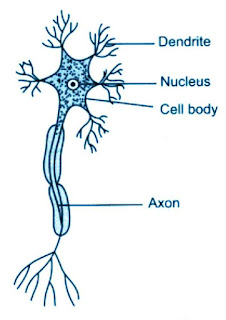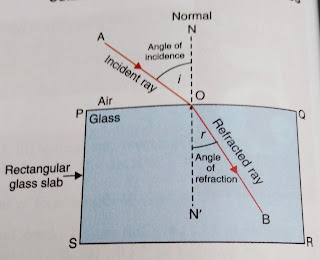NCERT Solution for Class 6 Maths Chapter 3 Playing with Numbers Ex 3.5
Playing with Numbers: Here you get NCERT Solutions for Class 6 Maths Chapter 3 Playing with Numbers Ex 3.5 with Answers Pdf free download.In NCERT Solution Class 6 Maths with Answers you get question-answer based on latest exam pattern. By providing NCERT Chapter-wise Class 6 Maths Questions with Answers our target to help students get concept of the lesson very well.
You can also visit NCERT Questions for Class 6 Maths Chapter-wise Questions with Answers to revise your syllabus thoroughly and enhance the chances of securing high marks in your board exams. It also helps in your CBSE NCERT Class 6 online test, online exam for admission well.
-------------------------------------------------------------
Board CBSE
-------------------------------------------------------------
TextBook NCERT
-------------------------------------------------------
CLASS Class 6
--------------------------------------------------------
SUBJECT Maths
----------------------------------------------------------
CHAPTER Chapter 3
-------------------------------------------------------------
SUBJECT Playing with Numbers
--------------------------------------------------------------
Visit NCERT Solutions
-------------------------------------------------------------------
NCERT Class 6 Chapter 3 Ex 3.1
NCERT Class 6 Chapter 3 Ex 3.2
NCERT Class 6 Chapter 3 Ex 3.3
NCERT Class 6 Chapter 3 Ex 3.4
NCERT Class 6 Chapter 3 Ex 3.6
NCERT Class 6 Chapter 3 Ex 3.7
You May Like
NCERT Solutions Class 6 Science
NCERT Solutions for Class 6 Maths Chapter 3 Playing with Numbers Ex 3.5 with Answers
Exercise 3.5
Question 1:
Which of the following statements are true:
(a) If a number is divisible by 3, it must be divisible by 9.
(b)If a number is divisible by 9, it must be divisible by 3.
(c) If a number is divisible by 18, it must be divisible by both 3 and 6.
(d)If a number is divisible by 9 and 10 both, then it must be divisible by 90.
(e) If two numbers are co-primes, at least one of them must be prime.
(f) All numbers which are divisible by 4 must also be divisible by 8.
(g) All numbers which are divisible by 8 must also be divisible by 4.
(h)If a number is exactly divides two numbers separately, it must exactly divide
their sum.
(i) If a number is exactly divides the sum of two numbers, it must exactly divide the
two numbers separately.
Answer 1:
(a)If a number is divisible by 3, it must be divisible by 9.(true)
(b)If a number is divisible by 9, it must be divisible by 3.(false)
(c) If a number is divisible by 18, it must be divisible by both 3 and 6. (True)
(d)If a number is divisible by 9 and 10 both, then it must be divisible by 90.(False)
(e) If two numbers are co-primes, at least one of them must be prime. (False)
(f) All numbers which are divisible by 4 must also be divisible by 8. (False)
(g) All numbers which are divisible by 8 must also be divisible by 4. (True)
(h)If a number is exactly divides two numbers separately, it must exactly divide
their sum. (True)
(i) If a number is exactly divides the sum of two numbers, it must exactly divide the
two numbers separately. (False)
Question 2:
Here are two different factor trees for 60. Write the missing numbers.
(a)
(b)
Answer 2:
(a)
(b)
Question 3:
Which factors are not included in the prime factorization of a composite number?
Answer 3:
The factor which is not included in the prime factorization of a composite number is 1.
Question 4:
Write the greatest 4-digit number and express it in terms of its prime factors.
Answer 4:
The greatest 4-digit number = 9999
The prime factors of 9999 = 3 × 3 × 11 × 101.
Question 5:
Write the smallest 5-digit number and express it in terms of its prime factors.
Answer 5:
The smallest five digit number is 10000.
The prime factors of 10000 = 2 × 2 × 2 × 2 × 5 × 5 × 5 × 5.
Question 6:
Find all the prime factors of 1729 and arrange them in ascending order. Now state the relation, if any, between, two consecutive prime numbers.
Answer 6:
Prime factors of 1729 = 7 × 13 × 19.
The difference of two consecutive prime factors is 6.
Question 7:
The product of three consecutive numbers is always divisible by 6. Verify this statement with the help of some examples.
Answer 7:
Among the three consecutive numbers, there is at least one even number and at least one multiple of 3.
Thus, the product which we get from three consecutive numbers is a multiple of 6.
Example: (i) 5×6×7=210
(ii) 8×9×10= 720
Question 8:
The sum of two consecutive odd numbers is always divisible by 4. Verify this statement with the help of some examples.
Answer 8:
1+3 = 4 and 4 is divisible by 4.
11+13=24 and 24 is divisible by 4.
15+17=32 and 32 is divisible by 4.
23+25=48 and 48 is divisible by 4.
NCERT Solutions for Class 6 Maths Chapter 3 Playing with Numbers Ex 3.5 with Answers
Question 9:
In which of the following expressions, prime factorization has been done:
(a) 24 = 2 x 3 x 4
(b) 56 = 7 x 2 x 2 x 2
(c) 70 = 2 x 5 x 7
(d) 54 = 2 x 3 x 9
Answer 9:
In expressions (b) and (c), prime factorization has been done.
Question 10:
Determine if 25110 is divisible by 45.
[Hint: 5 and 9 are co-prime numbers. Test the divisibility of the number by 5 and 9.]
Answer 10:
The prime factorization of 45 = 5 x 9
25110 is divisible by 5 as ‘0’ is at its unit place.
25110 is divisible by 9 as the sum of digits (that is 9) is divisible by 9.
Therefore, the given number must be divisible by 5 x 9 = 45
Question 11:
18 is divisible by both 2 and 3. It is also divisible by 2 x 3 = 6. Similarly, a number is divisible by 4 and 6. Can we say that the number must be divisible by 4 x 6 = 24? If not, give an example to justify your answer.
Answer 11:
No. Number 36 is divisible by both 6 and 4 but 36 is not divisible by 24.
Question 12:
I am the smallest number, having four different prime factors. Can you find me?
Answer 12:
The smallest four prime numbers are 2, 3, 5 and 7.
Hence, the required number is 2 x 3 x 5 x 7 = 210
NCERT Solutions for Class 6 Maths Chapter 3 Playing with Numbers Ex 3.5 with Answers


